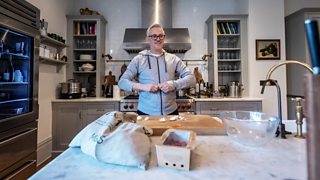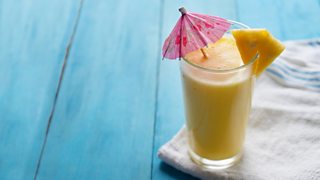Seven things we found out about E. coli and what makes food safe.
As a major outbreak from a new strain of E. coli makes headlines, for Radio 4's The Food Programme – What Makes Food Safe? presenter Sheila Dillon and producer Nina Pullman examined the changing behaviour of pathogens and microbial food safety, through one particular strain of E. coli. And what does safe food even mean in a world where processed food is increasingly seen as the top cause of dietary ill health?
Here are seven things we found out about food pathogens and what makes food safe.
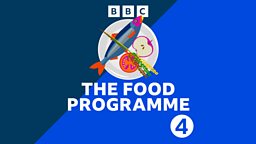
What Makes Food Safe? – Sheila Dillon investigates the new strain of E coli behind the current outbreak. Listen to the whole episode.
Most E. coli is harmless
“E. coli is a bug that we all have in our intestines,” explains Britain's leading expert on E. coli, the microbiologist Professor Hugh Pennington. “The vast majority of the hundreds of different E. coli variants are are quite harmless unless they get into the wrong place.”
[E. coli] only causes illness 'when we eat manure from cows that have it'.Prof. Hugh Pennington
However, in the 1980s, a new strain of E. coli appeared – STEC, short for Shiga Toxin-producing E. coli, also known as E. coli O157: H7. As the name suggests, this strain produces a poison. The bug lives in the intestines of ruminative animals – e.g. cattle, sheep, goats and deer – but only causes illness “when we eat manure from cows that have it”. This happens because E. coli can easily get on to food and surfaces and is very infectious, potentially causing serious illnesses in the very old and the very young.
The outbreak at the moment is linked to a newer strain, O145.
Any food that can get manure on it can carry E. coli
O157 was once known as “the burger bug” in the US because it was associated with eating burgers which were cooked rarer. Dairy products also tend to be the in the spotlight when it comes to E. coli, but Professor Pennington says that any food that can get manure on it is a risk. “Vegetables have been a source because the field might have been treated with manure. For example, in America they have big outbreaks with apple juice because the apples would fall to the ground in an orchard where animals had been running about.”

Overuse of antibiotics is a factor in the rise of E. coli cases
The World Health Organisation suggested there was a link between rise in E. coli cases and the overuse of antibiotics to treat humans or to prevent disease in intensively reared animals, both leading to a dangerous spread of antibiotic resistance. Sheila notes: “That was the theory put to the test when the EU banned antibiotics in animal feed in 2006, and the cases of 0157 E. coli generally began to fall in the UK.”
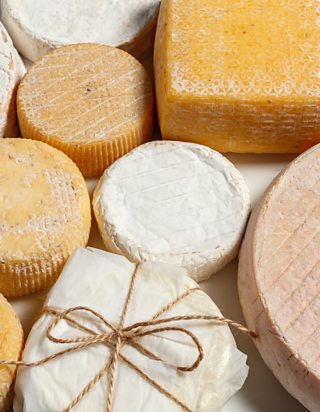
The environment is among other factors in the spread of E. coli
Other explainers for the rise in harmful E. coli strains include feed – “animals fed on grains seem to have more toxic aspects in their guts than animals reared on pastures,” says Sheila.
Meanwhile, microbiologist Professor Catherine Donnelly points to some big picture factors – for example, medical interventions such as chemotherapy impact the immune system, something, she argues, we should be more aware of. Professor Donnelly also cites the environment. “Look what's happening to our climate across the globe, the flooding events that are moving pathogens from places where they wouldn't normally move if that wasn’t happening.”
Raw milk chesses have come under scrutiny
Despite the evidence about the foods that cause most E. coli illness, some unpasteurised diary products like raw milk cheeses have come under scrutiny. Sometimes this can be for protectionist reasons such as in the US where legislation against unpasteurised products has been particularly – and deliberately – harsh.
The effect is that some raw cheese makers are moving to pasteurisation through the fear and stress of being linked to an outbreak. In fact, softer cheeses do carry a higher risk from microbes such as E. coli, and even pasteurisation isn’t foolproof. However, food safety issues like STEC are, according to Bronwen Percival, technical director of Neal’s Yard Dairy cheesemongers, “not even primarily a cheese issue: this is a fresh vegetable issues salad issue; this is a rare burger issue – this is an issue that's been associated with things like nut butters and dried fruit and things that we would consider entirely 'normative’ and part of a normal diet.”
Food safety is a battle on several fronts
Echoing concerns raised by "food citiziens" – ordinary members of the public who took part in the national conversation on food, coordinated by the Food, Farming and Countryside Commission – Sheila noted that, “The prevalence of non-communicable diseases: stroke. heart disease, diabetes type two, are increasingly linked to the consumption of industrialised, ultra processed food.”
Just how difficult it is to get a balanced notion of food safety is highlighted by Professor Donnelly who says “we're all consuming fresh fruits and vegetables because they're healthy foods but they turn out to be the leading cause of most foodborne illness.”
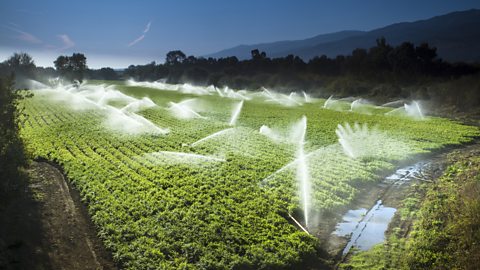
What happens when food pathogens meet public policy?
Prof. Donnelly discusses risk factors in both small-scale and industrial food production.
Notwithstanding this paradox, it is industrialised process that is one of the causes here. Professor Donnelly gives the example of Salinas Valley, known as the “Salad Bowl of the World”, which has been the origin of a number of E. coli outbreaks.
Sheila recognises that “standards of production have to be really high” at the same time as acknowledging that “the numbers of people dying from diet related diseases now puts Covid in the shade.”
Phage-based interventions give hope
There is hope in the fight against pathogens, which has seen a lot of activity around phage-based interventions. Chair of microbial genetics at the Roslin Institute at the University of Edinburgh, David Gally, explains: “These are viruses that infect bacteria and kill them. So we can find viruses, these phages, that kill E. coli 157 and other serotypes.”
David and his team are now testing ways of getting these bacteria-eating viruses inserted into feed or food packaging.

-
![]()
Gary Lineker
How Gary Lineker has swapped studs for the stove and emerged as a self-taught, self-confessed foodie.
-
![]()
A Life Through Food
The Food Programme profiles the great and good through their food stories.
-
![]()
Six summer cocktails to celebrate the sunshine
Six invigorating cocktails and mocktails to see you through the summer weather.
-
![]()
How to keep your cool in a heatwave
We鈥檙e on hand to help you survive the scorcher and go from sweltering to flourishing.
